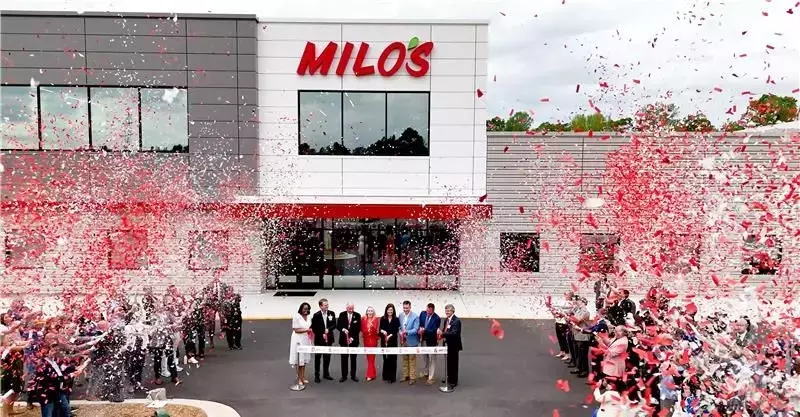
A new chapter has begun for Milo’s Tea Company with the opening of its advanced manufacturing and distribution center in Spartanburg, South Carolina. This $200 million investment aims to enhance the brand's capacity while maintaining its commitment to quality and sustainability. Once fully operational, the plant will employ over 200 individuals, continuing the company’s tradition of prioritizing people. Founded in 1989, Milo’s Tea ranks as the fourth-largest iced tea producer in the United States. The facility’s strategic location facilitates better logistics and supports further expansion into retail markets.
Revolutionizing Production in South Carolina
In a region renowned for its vibrant autumnal hues, Milo’s Tea Company recently inaugurated its cutting-edge production hub in Spartanburg, South Carolina. This impressive project reflects the company’s dedication to growth and innovation. By the time it reaches full capacity, this site is expected to provide employment opportunities for more than 200 residents. Already, over 130 positions have been filled, showcasing the rapid progress made since construction began. These early hires play an essential role in fostering Milo’s People First culture, which emphasizes food safety, high-quality standards, and operational excellence.
The choice of Spartanburg was deliberate, offering proximity to vital transportation routes that streamline supply chain logistics. Tricia Wallwork, CEO of Milo’s Tea, highlighted the importance of brewing authentic, preservative-free beverages to preserve their distinctive homemade flavor. Additionally, the advantageous location in South Carolina allows for potential future expansions across mid-Atlantic retail outlets.
This milestone event drew attention from key partners, including Walmart, who participated in the ceremonial ribbon-cutting. With products available in approximately 4,200 Walmart stores nationwide and over 55,000 locations overall, Walmart has significantly contributed to Milo’s nationwide success. John Furner, CEO of Walmart US, praised Milo’s commitment to American manufacturing, noting that two-thirds of Walmart’s spending supports domestically produced goods. This collaboration exemplifies how supporting local businesses can create jobs and deliver customer satisfaction.
Over the past decade, Milo’s Tea has experienced exponential growth, increasing its workforce from under 50 to nearly 1,000 employees and expanding from one to four production facilities. The Spartanburg facility stands testament to this remarkable journey.
From a journalist's perspective, Milo’s Tea demonstrates how combining technological advancements with human-centric values can drive sustainable business growth. Their focus on community engagement, environmental responsibility, and product integrity sets a commendable example for other companies aiming to thrive in today’s competitive market. This story inspires optimism about the positive impact businesses can make when they align profit goals with social responsibility.
